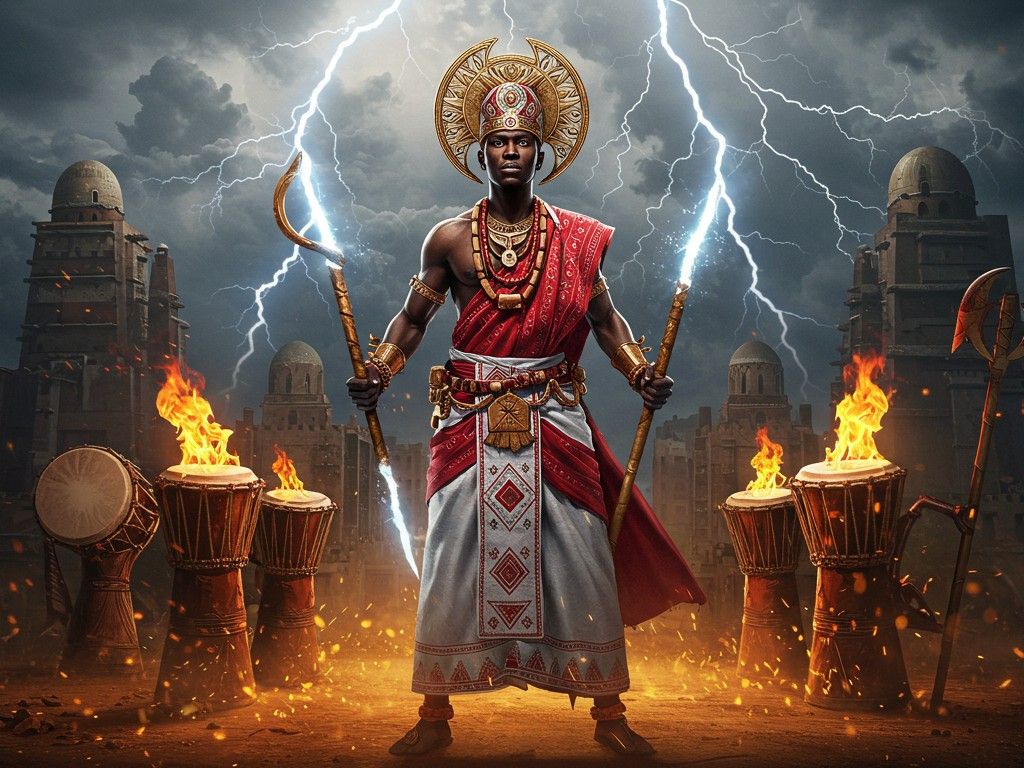Sàngó: The Yoruba God of Thunder and Justice

Who is Sàngó?
Sàngó (also spelled Shango or Ṣàngó) is one of the most powerful and venerated Orishas (deities) in the Yoruba traditional religion. Known as the god of thunder, fire, and justice, he is a symbol of raw energy, fearless leadership, and spiritual authority.
Originally a historic king of the Oyo Empire, Sàngó was later deified due to the mystique surrounding his reign and supposed supernatural powers. As an Orisha, he now governs over lightning and thunder, often bringing divine retribution to those who abuse power or violate spiritual laws.
Origin and Deification
Sàngó was believed to be the third Aláàfin (king) of Oyo, renowned for his charisma, military prowess, and command of mystical powers. Legend says he could call down thunder by chanting incantations or striking his staff — a two-pronged symbol called “oshe Sango.”
His reign was both glorious and controversial, filled with power struggles and magical feats. After his mysterious death — said to have involved fire and lightning — the people began to worship him as a god.
Symbols and Worship
Thunderstones (edun ara): Believed to fall from the sky during lightning strikes, these are sacred to Sàngó.
Double-headed axe (oshe): Represents balance and duality of justice.
Colors: Red and white are Sàngó’s sacred colors.
Drumming: The bàtá drum is traditionally used to invoke Sàngó’s spirit.
His followers often chant and dance in trance during ceremonies, channeling his fiery energy.
Role in the African Diaspora
Sàngó’s worship traveled with the Yoruba people during the transatlantic slave trade. Today, he is revered across the Americas:
Santería (Cuba): Known as Changó, he is one of the most beloved Orishas.
Candomblé (Brazil): His myths and rituals are deeply preserved.
Vodun & other African traditional faiths also carry his essence.
In each of these, he represents masculine strength, warrior spirit, and divine justice.
Sàngó’s Relevance Today
Sàngó is more than a thunder god — he is a symbol of power with responsibility, reminding leaders and citizens alike to wield influence with integrity.
Even in modern Nigeria, his legacy lives on through:
The Sango Festival in Oyo
Names like Sangofunmi, Sangodare
His inclusion in Afrobeat, literature, and films
📌 Final Thoughts
Sàngó’s story teaches us that true leadership combines strength with justice, passion with control, and power with wisdom. As thunder still cracks across Yoruba lands, many believe it is the voice of Sàngó — watching, warning, and protecting.
Whether worshipped as an Orisha or remembered as a legendary king, Sàngó remains one of the most enduring symbols of Yoruba identity and spiritual power.

